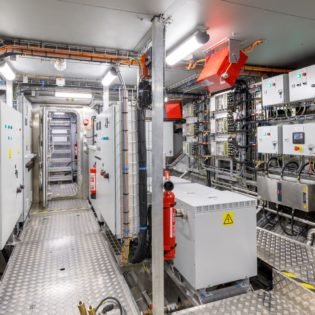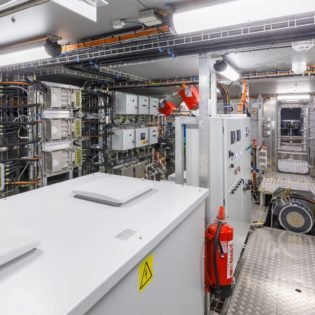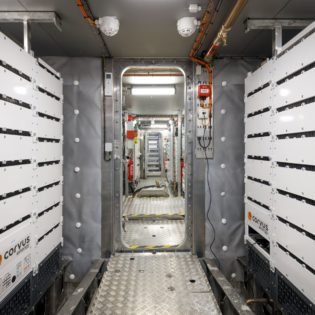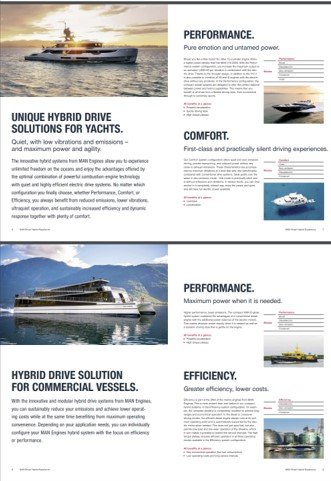First, this is a really well-written post. Many thanks.
In my opinion (hope?), EV/Hybrid/Alt Energy is pretty far along for cars, not so far for trucks. Near zero for boats except for highly adapted use cases such as the Duffy or sail. But I also see there are a number of very interesting efforts on the horizon such as the Steeler. Will it be a Nikola, or something more promises? Or are the barriers you cite impenetrable and thus we are destined to always have ICE boats?
Where JWellington has gone awry is he sees EV/Hybrid boats much further along the adoption curve than anyone else (or that can be reasonably supported - even the Steeler distributor has been radio-silent).
But it begs an interesting question - how do boats like the Steeler fit onto the technology continuum, especially for reduced-carbon energy? TT - your posts indicate you believe they are Emperors Cloths, just a fancy marketing veneer. Is that an over-simplification? For long distance, I suppose you're right - for years, owners of Hybrid cars have been disappointed by their lack of amazing mileage on long trips.
So what do these boats mean to the future? Any impact on carbon-reduction? Hybrid/EV in sail is definitely gaining traction - what is the Powerboat equivilent?
Peter
See, this can be a constructive discussion...
The disappointment of Hybrid car woners on long trips is for EXACTLY the reason they are not helpful with boats. On a long highway drive you have a constant load, and no regenerative energy recapture, so a hybrid offers no advantage over a conventional car, yet carries some extra hybrid baggage. Thankfully they are parallel hybrids so there is a reasable change of getting performance equal to a conventional drive, and hopefully no worse in any significant way.
The whole point with boats is that operating one is essentially one long highway drive. This is a good analogy to hybrid cars that I didn't think of, and to the extent that people commonly understand this, it's a good way to explain why it's not beneficial in boats. There is no advantage to the hybrid, and no regenerative power opportunity. It's all energy out, and no energy in. Parallel hybrid adds nothing, and perhaps makes things a bit worse. Serial hybrid only makes things worse, all the time.
I think if you look at actual benefit in terms of reduce fuel consumption, and subsequent reduced emissions, the benefit of these various technologies depends hugely on the use case.
Hybrid cars work because they capture and reuse the stored energy that is otherwise thrown away when you slow down a moving car. Typical driving involves a lot of speeding up and slowing down, so it's very beneficial.
Electric cars became practical because of improved battery technology. A lot of driving is local, short trips, and an electric car works well for that use. But if you don't own your own home with a garage or parking space where you can install a charger, it becomes a lot less practical. For anyone who parks their car on the street, or in some sort of public parking, the practicality of an electric can is very limited. Similarly for anyone who has much longer driving trips in their lives.
What I think can and does work well is a two car family where one car is electric and principally used for local trips, and a conventional car for weekend getaways, trips to grandma's for thanksgiving, etc.
Here are some specific examples close to me. We had a bright yellow electric SmartCar when we lived in Gloucester. It was a perfect car for going about town, fun to drive, easy to park, and put a smile on everyone's face. And when I got home I could park it in our private garage and plug into our private charger. But it could barely make it to a more distant grocery store that my wife preferred, couldn't make it to the airport in Boston, couldn't even make it to the dealer for service. Now the SmartCar is an extreme example because it had very limited range, but you get the idea of the issues. We had two cars, so this was all acceptable to us.
My son had an electric car for a couple of years. Most of his driving is around the Bay Area and it was a good car for that. He had a designated parking space for his condo, so was able to install a charger. But when he had free time, he would go to Big Sur, or Tahoe, or somewhere to get away from the city. The trips all revolved around charger locations and strategies, and he got stuck once with no working chargers, and not enough charge to get somewhere else. His use really only worked with two cars, one for around town and one for getaways. He is now back owning a conventional car.
I live off grid and our electric consumption is about 90% solar, and 10% diesel generator when the sun doesn't shine. It would be hard to consume less for a "normal" life style. But an EV is completely off the table. Charging would be moving power from one battery to another, and I would need a whole lot more solar than I can practically install, and way more than I currently have. And for times when the sun doesn't shine, car charging would be a diesel generator, running through a charger, charging batteries, then drawing power out of one battery via an inverter to power another charger to charge the car. It's even worse than the serial hybrids we have been talking about.
I think EVs will continue to grow, and continue to expand their usefulness. Plus, charging infrastructure will continue to grow. But to fully replace cars today I think you need 300+ mile range, and every car needs access to a charger at a [parking space where they normally leave their car for 6+hrs a day. That's a LOT of chargers. We will get there, but it's not going to happen overnight. This is upside down from the current model for refueling that has evolved and been built over the past 100 years. To refuel a car you take a short break and stop somewhere, then carry on. 5 minutes to refuel is not a problem. With an EV, stopping to refuel takes too long. You want to refuel when you aren't using the car, not as a pause when you are using the car. Places like street parking spaces, longer term garages and parking lots, work parking lots, and of course private homes are where people naturally leave cars for longer periods of time. Everyone has to have access to one of those, at least once a day for this to really take over.




